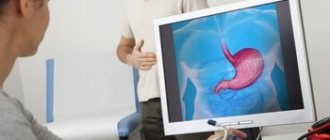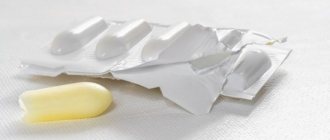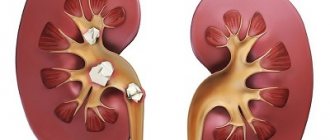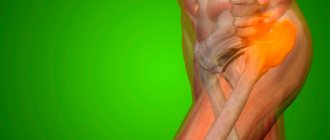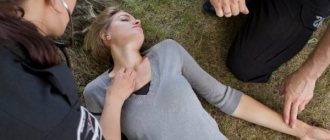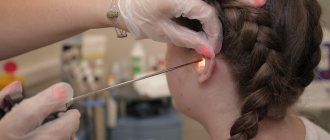Many people think that snoring is a normal physiological phenomenon that does not cause any harm to health. However, this is a misconception. Experts have proven that snorers are more susceptible to developing diseases of the heart and blood vessels; they feel worse during the day, as they often do not get enough sleep at night. Therefore, if a person has this problem, one should ask the question: how to cure snoring? You can combat this negative phenomenon at home using traditional methods, or you can contact a specialist for diagnostics and drug therapy.
What is snoring and its causes in men and women
Snoring, or rhonchopathy, is the sound of the breathing of a sleeping person, resulting from vibration of the soft tissues of the larynx during the passage of air currents through the respiratory tract. At least 30% of the adult population of the planet suffers from snoring, and with age, the number of people familiar with this problem first-hand increases significantly.
Ronchopathy is far from a harmless phenomenon. It can indicate serious health problems, including cancer, so you should seek medical help immediately.
The main causes of snoring during sleep include:
- congenital pathologies of the upper respiratory tract, primarily deviated nasal septum;
- chronic ENT diseases (rhinitis, sinusitis, tonsillitis, sinusitis);
- malocclusion, short frenulum of the tongue;
- nasal injuries;
- overweight;
- disorders of the thyroid gland;
- allergic reactions that provoke swelling of the pharynx and larynx;
- diabetes;
- benign and malignant neoplasms of the respiratory tract and nasopharynx;
- natural age-related changes;
- overwork;
- bad habits;
- taking sleeping pills and antidepressants;
- neurological diseases accompanied by decreased muscle tone.
In addition to the above factors that provoke rhonchopathy in both sexes, common causes of snoring during sleep in women include hormonal disorders. We are talking about the increased production of male sex hormones against the background of a deficiency of female ones. First of all, this is characteristic of menopause, so rhonchopathy often manifests itself at the age of 45-50 years.
The most common causes of snoring in young women include pregnancy, premenstrual syndrome, and long-term use of oral contraceptives. In these cases, the body undergoes serious hormonal changes that create favorable conditions for the development of ronchopathy.
Men most often suffer from snoring at night due to an unhealthy lifestyle (lack of physical activity, overeating, smoking, alcohol abuse), advanced ENT diseases and congenital or acquired maxillofacial deformities.
Psychosomatics also plays an important role in the development of rhonchopathy. When trying to understand the causes and methods of treating snoring in women, you need to consider that it can be a consequence of:
- long-term stress and old grievances;
- unresolved problems and restrained emotions;
- lack of opportunity to realize yourself as a person, express your opinion and be heard.
If a woman is unhappy in her family, does not enjoy her work, but cannot throw out negative emotions during the day, they come out at night, in the form of snoring, when the consciousness turns off and does not exercise total control.
Snoring in men often has similar causes. Many representatives of the stronger half of humanity are taught from childhood to suppress emotions, show willpower and solve problems on their own, without the help of others. It is hidden mental anxieties and unspoken complaints, especially combined with a feeling of unfulfillment in the profession, that often result in nightly bouts of snoring.
Ronchopathies affect not only adults, but also children, especially under the age of 6 years. If bouts of snoring are not associated with apnea syndrome and do not affect the quality of the baby’s night’s rest, there is no reason to worry. However, in some cases, the problem may indicate the presence of polyps and inflammation of the adenoids, excess weight, displacement of the lower jaw due to the structure of the skull, and even epilepsy. Therefore, only an experienced specialist can tell you how to cure snoring in a child.
Due to overly narrow nasal passages, even newborns can snore. But in this case, the pathology goes away on its own within 2 months, provided that the parents properly care for the mucous membrane, clean and moisturize it.
Traditional medicine recipes
Snoring has prevented people from sleeping at night at all times, so healers have accumulated many effective recipes for eliminating it. How to treat rhonchopathy with folk remedies:
- before going to bed, instill 1-2 drops of vegetable oil into each nostril, preferably olive or sea buckthorn;
- An hour before going to bed, you need to eat juicy fresh carrots. It contains biologically active substances that make breathing easier;
- to get rid of snoring, grind a fresh cabbage leaf into a paste, add a teaspoon of honey and eat two hours before falling asleep;
- pour 2 tbsp into a thermos. spoons of dandelion root, lemon balm and St. John's wort, pour a liter of boiling water. Leave for 5 hours, strain. Take 150 ml before bedtime;
- pour 3 tbsp into an enamel container. spoons of lingonberry leaf and 5 tbsp. spoons of motherwort, pour 2 cups of boiling water. Leave for 3 hours, strain, take 0.5 glasses of drink before bed.
Somnologists recommend that women who snore review their diet and exclude spicy, fatty foods. In order for the mucous membranes of the respiratory tract to function optimally, you should drink at least 2–2.5 liters of still water daily.
If a woman’s snoring occurs infrequently and quickly disappears, then you can use traditional medicine recipes and get rid of it once and for all. In all other cases, you need to contact a specialist for diagnosis. If a serious pathology is detected at an early stage, then it responds well to treatment and does not cause serious complications.
Why snoring is dangerous
Ronchopathy never goes away without leaving a trace on the body. How serious the complications will be depends on the extent of the problem. If snoring occurs from time to time, for example, due to overeating or an uncomfortable sleeping position, it does not pose a health risk. Another thing is rhonchopathy caused by diseases. It occurs regularly and reduces the quality of night's rest, accumulating lack of sleep and fatigue.
Chronic rhonchopathy in severe form leads to constant uncontrollable awakenings. Drowsiness, apathy and headaches do not leave a person. Ventilation of the lungs deteriorates and the oxygen content in the blood decreases. This significantly increases the risk of developing diseases of the cardiovascular system, heart attack and stroke, and in men it causes problems with potency.
Severe snoring in pregnant women is extremely dangerous. Due to inadequate breathing of the mother, the fetus is at risk of hypoxia during night sleep, which can result in intrauterine growth retardation, pathologies of the cardiovascular system and even death.
It is important to figure out in time how to treat snoring in men and women for one more reason: rhonchopathy affects the quality of night's rest and often causes insomnia. This applies to both the snorer and his loved ones. If a wife snores loudly on the next pillow, the husband is unlikely to be able to rest properly, and vice versa. And chronic lack of sleep, in turn, disables all body systems, daily undermining human health.
Family relationships also suffer: irritation increases, mutual claims and resentments appear. In addition, if a girl snores, many men find this unattractive, which inevitably leads to a decrease in self-esteem and the development of complexes.
Overweight
Overweight people snore about five times more often than people of normal weight. The reason for this is very simple: highly developed adipose tissue in the neck area compresses the upper respiratory tract. In addition, obstructive sleep apnea syndrome often develops against the background of obesity.
There is a very interesting feature: the presence of snoring and obstructive apnea syndrome leads to the progression of obesity! This is explained by the fact that when there is insufficient oxygen supply to the body during snoring, metabolism slows down.
Alcohol and drug use
It is known that during sleep the muscles relax, the same applies to the muscles of the pharynx and soft palate. Alcohol and sedative drugs lead to even greater relaxation of the muscles, including the respiratory tract. This is why drunk people snore so loudly.
The recommendation is simple: give up this bad habit altogether or drink a moderate amount of alcohol a couple of hours before bedtime.
Differences in snoring treatment for men and women
How can a woman get rid of snoring in her sleep? What products are considered more effective for men? Given the prevalence of the problem, many are searching for answers to these questions.
And the first thing they need to understand is that the choice of one treatment method or another depends not on the patient’s gender, but on the reasons underlying the ronchopathy. For example, snoring in women during menopause can be eliminated by choosing the right hormone replacement therapy. And a heavy male smoker will have to adjust his established lifestyle, forgetting about bad habits.
This means that there are no universal methods of combating rhonchopathy for men and women, and only a qualified specialist can choose the right treatment.
Getting rid of snoring with surgery
When talking about how to eradicate snoring during sleep in men, it is impossible not to mention surgical treatment methods. Invasion is necessary in situations where the cause of snoring is the presence of sources of organic pathology in the nasopharynx. Thus, the nasal septum is straightened, adenoids are eliminated, and natural defects are corrected and plasticized.
Surgical treatment is performed in a hospital setting, but hospitalization is not always necessary. So, after removing the adenoids, a person is discharged for outpatient treatment within 2 hours after completion of the operation. Deep interventions (plasty of the nasal septum) require monitoring of the patient in the postoperative period and qualified medicinal support. Such patients stay in the hospital for several days.
Septoplasty
Septoplasty is an operation to correct the location of the nasal septum. In advanced clinics it is performed endoscopically or laser. During the operation, the doctor removes tissue that prevents the septum from taking its usual anatomical location. The partition itself is not affected. There is no need for long-term hospitalization.
Traumatic defects of the nasal septum require more labor-intensive intervention associated with its destruction. In this case, the cartilaginous matter is opened, given the desired position, and then secured with gauze turundas and external bandages until complete healing. This operation is considered traumatic and requires hospitalization of the patient.
Treating snoring at home
How to get rid of snoring during sleep at home? There are many effective ways to combat rhonchopathy on your own. Thanks to them, you can cope with the problem using gentle methods, without pills or surgery. But they work only at the initial stage - if snoring is accompanied by sleep apnea, you cannot do without the help of specialists.
Correct conditions and sleeping place
How to get rid of snoring during sleep for a young girl or guy who does not have serious health problems? First of all, take care of comfortable conditions in the bedroom and a suitable bed. You need to monitor the temperature and humidity in the room, regularly ventilate the room and eliminate potential allergens from it, purchase an orthopedic pillow, and be sure to clean and moisturize your nasal passages before going to bed.
Correct sleeping position
How to stop snoring while sleeping at night? First, learn to sleep correctly, in the right position. To reduce the risk of developing rhonchopathy, it is better to purchase an orthopedic pillow to support the neck and reduce stress on the muscles. If this is not possible, you can put a sheet of plywood under a regular pillow so that your head is elevated while sleeping.
It is also recommended to avoid sleeping on your back. For example, to cure women's snoring associated with incorrect body position during sleep, you can sew a small cloth ball stuffed with cotton wool to the back of the nightgown. With it, turning over onto her back, a woman will feel discomfort, which will help her get rid of the bad habit and learn to sleep on her side.
Lifestyle change
Treatment of snoring at home in women and men involves, first of all, giving up bad habits. Unhealthy diet, which provokes the appearance of extra pounds, a passive lifestyle, abuse of sleeping pills and sedatives are common causes of the development of rhonchopathy.
Using special devices
To cure loud snoring in a woman, somnologists recommend using special devices with different operating principles during sleep. But their main effect is the same - ensuring an optimal breathing process. Such devices include:
- mouth guards, like boxing mouth guards. Used in the treatment of people who snore due to abnormal taste. High-quality mouth guards are made to order and are not cheap;
- clips made of hypoallergenic silicone. The device is equipped with special jumpers to stimulate the reflex centers of the nasopharynx. By regularly using the clip, a person trains the muscles of the respiratory tract to function correctly.
Reflexology offers to get rid of severe female snoring with the help of watches or bracelets. The devices have built-in special sensors that detect snoring. When picking up sound vibrations, the devices apply a mild electrical impulse to the skin, which increases the tone of the smooth muscle muscles of the larynx.
Juicy carrots eaten before bed reduce the severity of snoring in women
Drug treatment
Is it possible to buy an effective anti-snoring remedy at the pharmacy? There are no ready-made medications that can cope with rhonchopathy. But in cases where the cause of the problem is associated with various ENT diseases, special drops and sprays bring noticeable relief, restoring normal breathing during sleep.
The main task of such medications is to relieve swelling, reduce inflammation, moisturize and soften the mucous membrane. In addition to anti-inflammatory and vasoconstrictor drops and sprays designed to make breathing easier, various saline solutions are also used for this purpose. They have antiseptic properties, eliminate swelling and dryness in the nose associated with colds, allergies or insufficiently humid indoor air.
Medicines that facilitate nasal breathing during snoring should not be taken for a long time or in large quantities to avoid side effects.
In addition, there are homeopathic remedies and dietary supplements against snoring, but their effectiveness, especially in cases of severe ronchopathy, is questioned by experts. The action of herbal components is mainly aimed at freeing the nasal passages and pharynx from mucus, eliminating hoarseness and dryness in the mouth and nose. They relieve swelling of the nasopharynx and normalize the respiratory process, but do not affect the root cause of snoring, so their use is justified only as part of symptomatic therapy.
Positional treatment
Positional treatment includes three main points.
Choosing the right pillow
The pillow should not be too low - in this situation, when the person sleeps on his back, the head falls back, the tongue sinks, and the person’s snoring becomes more severe. At the same time, the pillow should not be too high: then the neck is in an unnaturally curved position, which, again, can aggravate snoring.
Ideally, it is advisable to use an anatomical contour pillow with a thickening under the neck. It provides the most physiological parallel position of the head in relation to the body. It takes a few days to get used to this type of pillow. At first it may not even seem very comfortable, but after a short time sleeping on it will become comfortable.
Ensuring an elevated head position
You can raise the headboard using a low (10–15 cm) stand installed under the legs of the bed at the head end. In this case, the entire bed is slightly tilted. Or only the head of the bed is raised (functional bed). In this situation, even in a supine position, the tongue sinks less. In addition, the fluid is redistributed to the underlying parts of the body, swelling of the nasopharynx decreases and its lumen increases.
With very severe sleep apnea, patients can sometimes only sleep while sitting. In this sense, the “toilet symptom” is interesting, when the patient goes to the toilet, sits on the toilet and falls asleep. In this position, he can sleep for several tens of minutes. When he wakes up, he feels that he slept better than in his bed - except, of course, for the pain in his back and numb legs.
Interestingly, sitting sleep, despite its unexpectedly high quality, can be dangerous for such patients. They sit down and fall asleep on the edge of the bed or on the toilet in the same toilet, and then fall, often face first, receiving serious injuries.
Sleeping on your side
Quite often, snoring occurs or gets worse when lying on your back. The same applies to sleep apnea. In such cases, you should sleep on your side.
When a person is used to sleeping on his back, even if he overcomes himself and falls asleep on his side, at night he still takes his usual body position. To avoid this, sew a pocket to the back of your pajamas (in the area between the shoulder blades). At night, place some hard object there - for example, a children's block or a tennis ball. You simply won’t be able to lie comfortably on your back and end up sleeping in the correct position. In the West, people often use special “backpacks” or belts that they put on before going to bed (Fig. 12).
Surgery
How to stop snoring every night in your sleep if the cause of the problem lies in congenital anomalies in the structure of the nasopharynx or previous injuries? In these cases, surgery cannot be avoided. If conservative treatment methods do not work, patients are prescribed:
- removal of adenoids, polyps, tumors;
- elimination of deviated nasal septum;
- excision of the palatine arches;
- reduction of tonsils;
- partial removal of sagging palatal tissues;
- rhinoplasty, etc.
In addition to traditional methods of surgical treatment, modern non-invasive technologies are actively used to get rid of anatomical defects that cause snoring:
- cryodestruction to reduce the size of the tonsils, affecting the palate or uvula;
- laser and radiofrequency incisions for tightening the soft palate.
Procedures of this kind take little time, are performed under anesthesia and do not require a long recovery period. But the effect of them does not always last for a long time, and repeated intervention is fraught with complications: changes in voice timbre, difficulty swallowing, nasal sound, etc. Therefore, the decision on how exactly to deal with snoring in adult women and men can only be made by the attending physician, after a thorough examination and making an accurate diagnosis.
Causes of snoring
Snoring is a low-frequency sound that occurs during breathing during sleep. It occurs due to relaxation of the muscles of the pharynx and soft palate. Because of this, the inhaled air flow is not able to fully pass through the upper respiratory tract. This is how snoring occurs.
The following are the causes of snoring:
- Congenital features - elongated uvula, large tongue;
- Deviation of the nasal septum;
- Hypertrophied palatine tonsils (tonsillitis);
- Enlarged pharyngeal tonsil (adenoids);
- Nasal polyps;
- Rhinitis;
- Excess weight;
- Consumption of alcohol, sleeping pills and sedatives;
- Age-related changes in the nasopharynx.
Congenital features
Congenital features that can cause snoring include an elongated uvula, a long palate, and a large tongue.
The uvula is a protrusion of the soft palate that hangs over the entrance to the oropharynx. The elongated uvula and soft palate block the lumen of the pharynx. These congenital anatomical features prevent the passage of air through the upper respiratory tract, which is what causes snoring. Often this defect is accompanied by congenital weakness of the muscles of the soft palate. It is characteristic that in this case the relaxation and vibration of muscles during sleep is further aggravated.
Deviated nasal septum
This is a fairly common cause of snoring, occurring in all age groups. The nasal septum is a plate that divides the nasal cavity into two halves. Nasal injuries often lead to a deviated septum.
With a curved septum, the passage of air flow is difficult. In addition, this defect contributes to the occurrence of chronic rhinitis, which further complicates nasal breathing.
Hypertrophied palatine tonsils
The palatine tonsils often hypertrophy due to infection. Enlarged palatine tonsils block the lumen of the oropharynx. Air passing through the narrowed lumen of the oropharynx causes peculiar vibrations in the muscles of the pharynx and the appearance of snoring.
People with this disease experience difficulty breathing. When talking with such patients, attention is paid to heavy, rapid breathing and a slightly open mouth.
If a person has a large tongue, during sleep, when the muscles relax, the root of the tongue falls into the oropharynx, thereby blocking its lumen.
Adenoids
This is an enlargement of the pharyngeal tonsil, making nasal breathing difficult. The disease is provoked by infectious or allergic agents.
Children often suffer from adenoids.
We recommend reading: Adenoids in children
With adenoids, the lymphoid tissue that makes up the pharyngeal tonsil grows and increases in volume, thereby blocking the lumen of the nasopharynx. Therefore, the air inhaled during sleep passes through with difficulty, thereby provoking oscillatory movements of the muscles of the soft palate and uvula. Relaxed throat muscles vibrate, which is what causes snoring. Adenoids are also accompanied by difficult, noisy nasal breathing and hearing impairment.
Nasal polyps
Polyps are growths of the mucous membrane in the nasal cavity or paranasal sinuses. Polyps block the nasal passages, thereby preventing the passage of air.
It is worth noting that nasal polyps are a very common disease among the adult population. Symptoms of the disease do not appear immediately, but when the polyps reach large sizes. Patients with this disease complain not only of snoring, but also of difficulty in nasal breathing and nasal congestion. Against the background of impaired nasal breathing, an upper respiratory tract infection is often associated.
Rhinitis
Rhinitis is an inflammation of the nasal mucosa. Catarrhal rhinitis is caused by infectious agents. With catarrhal rhinitis, the nasal mucosa swells, the lumen of the nasal passages narrows. The presence of mucus in the nose further obstructs the movement of air through the nasal passages.
Vasomotor rhinitis is a manifestation of an allergic reaction.
The nasal vessels dilate, mucus is released, and the nasal mucosa swells. All this leads to difficulty in nasal breathing and snoring. We recommend reading: Rhinitis: causes, symptoms, treatment, complications, prevention
Complications
Often people start looking for an effective remedy for snoring at home only after learning what serious problems it can cause. Without proper treatment, rhonchopathy can provoke:
- hypertension;
- heart rhythm disturbance;
- stroke;
- heart attack;
- slowing down metabolism;
- changes in blood parameters.
The main danger of snoring is sleep apnea, or sleep apnea, which without timely medical attention can even lead to death.
Medicines
Just look at these photographs (Fig. 14, 15).
This is an advertisement for an anti-snoring remedy. Its creators (apparently remembering couples breaking up due to snoring) decided to focus on the family. They claim that the drug “brings back rainbow dreams.” They depict the effect of stopping snoring as follows. A man who previously tormented his other half with snoring carries into the bedroom in the arms of the one whom their spouse imagined in their nightly fantasies. Simply put, when a “snoreer” stops snoring, he immediately becomes incredibly attractive and desirable to his other half.
Anti-snoring drugs are selling well, but the reviews after their use are very different. Unfortunately, these remedies do not work for everyone.
Their properties are as follows:
- Softening and moisturizing the mucous membranes (this reduces the adhesion of the walls of the pharynx and improves their glide).
- Some anti-inflammatory and anti-edematous effect (makes the airways clearer).
- Local tonic effect (increasing the tone of the muscles of the tongue and pharynx).
“Anti-snoring medications”, “anti-snoring medications”... Did you know that none of them are actually medicines? All of them belong to dietary supplements, that is, to products without proven effectiveness. The fact that they are effective is primarily reported by people with uncomplicated snoring caused by dry air in the bedroom or smoking. For other reasons (which, by the way, are much more common), a positive result is much less common.
For a complicated form of snoring - obstructive sleep apnea syndrome - not a single similar drug works. If you have apnea syndrome, you should not consider them as possible treatments.
Even if you have uncomplicated snoring and medications work for you, keep in mind:
- They will not eliminate snoring once and for all . Each use of this remedy relieves snoring for only one night. And in some cases, the product only works during the first half of the night... In general, be prepared for the fact that the purchase of the drug will become a permanent item of your expenses.
- No one guarantees that the remedy will work in the future . The causative factors for snoring (for example, excess weight) often progress over time, so that one day your favorite drug may no longer help. However, as long as it helps, you can use it.
New approach to therapy
Innovative medicine suggests using a variety of “nasal” and “oral” devices against snoring.
The first ones are designed to widen the passages of the nose, facilitating the access of oxygen to the airways during night sleep.
The role of the second group of devices in the treatment of snoring is to involuntarily touch the tongue to a foreign object located in the mouth, due to which the muscles of the palate do not relax and, accordingly, do not block adequate access of air to the respiratory tract.
Recently, the anti-snoring clip “Anti-snoring” has become increasingly popular. This nasal magnetic device not only copes with sound vibrations during sleep, but also helps treat obstructive sleep apnea syndrome that accompanies snoring. The main advantages of the clip include:
- affordable price;
- ease of use for home treatment of snoring;
- safety;
- efficiency;
- The clip provides quick treatment for snoring without expensive medications and specialist consultations.
Another answer to the question of how to treat snoring is to use the so-called radio wave method. This anti-snoring technology allows you to quickly strengthen the weakened muscles of the upper palate, returning their lost tone - some time after the operation, the characteristic sounds during sleep disappear.
Another innovative and quite effective method used in the treatment of snoring is a special sleep mask equipped with a mini-compressor. This miracle device for snoring continuously supplies the necessary portion of air, which, entering the respiratory tract, prevents the appearance of characteristic sound vibrations.
There are other interesting devices that can be used to treat night snoring:
- special stickers – the Brief Wright design is attached to the wings of the nose, it helps to make the nasal passages wider and, thus, make it easier for the patient to breathe at night;
- CPAP therapy is a mask equipped with a compressor. Indicated for people with obstructive apnea syndrome.
- “Mouth” design for the prevention and treatment of severe snoring.
It should be noted that the above structures should be used by the patient only after consultation with a specialist.
Treatment
To avoid the development of life-threatening complications, it is necessary to begin treatment for snoring as early as possible.
General preventive methods
To get rid of snoring, you need to eliminate its causes. This is precisely what general preventive therapy is aimed at.
Patients are recommended:
- Stop smoking and drinking alcohol three hours before bedtime.
- Timely detect and treat ENT diseases.
- Refrain from taking sedatives and hypnotics.
- Humidify the air in the room.
- Avoid contact with allergens - dust, pollen, woolen items, strong odors.
- Lose weight.
- Sleep on your side with your head elevated.
Exercises
To get rid of snoring, you need to train the muscles of the oral cavity, pharynx and tongue.
- Push your tongue forward and down, feel the tension of the muscles at its base and hold it in this position for a couple of seconds.
- Forcefully grasp a hard object with your teeth and hold for some time.
- Press your tongue on the hard palate until you feel tired.
- Pull your tongue towards your throat, exerting effort and straining your muscles. By touching the front of your neck with your finger, you can feel muscle tension.
- Whistling strengthens the muscles of the oral cavity. You need to whistle for 20 minutes a day while walking.
- In the evenings, gargle by throwing back your head and gurgling with water.
Adaptations
Intraoral anti-snoring devices can be used only in the absence of any contraindications or complications. If you have severe snoring and problems with nasal breathing, it is better to avoid them. These devices secure the lower jaw during sleep and ensure patency of the airway.
Anti-snoring clip
Anti-snoring clips are equipped with magnets that improve blood circulation and increase the tone of blood vessels. The clip is inserted into the nostrils and attached to the nasal septum. You can cure snoring with these clips in 2 weeks. They are approved for use by children over 12 years of age.
“Extra ENT” is an intraoral device for snoring, which can be purchased at almost any pharmacy. The device fixes the lower jaw, pushing it forward, tones the respiratory muscles, prevents vibrations of the walls of the pharynx and increases the lumen of the airways. Long-term use of such a device can completely eliminate snoring or make it less loud.
Drug treatment
Currently, pharmacies sell various anti-snoring medications: tablets, aerosols, rinses, drops, tinctures.
- "Asonor" is an effective nasal spray. Getting on the mucous membrane of the soft palate, it increases muscle tension during sleep. If the drug is used regularly, the first results will appear within 2 weeks.
- “Doctor Snoring” is a dietary supplement containing eucalyptus extract and produced in the form of a spray. The drug softens the mucous membrane, eliminates swelling, tones and increases the elasticity of the soft palate.
- "Sominorm" also refers to dietary supplements. This spray contains essential oils and is intended for long-term use. These aerosols have no side effects, are not absorbed into the blood and are safe for pregnant women and children.
- Antiallergic sprays reduce nasal congestion, eliminate runny nose and snoring. These include glucocorticosteroid drugs - Nasonex, Flixonase. They have pronounced anti-edematous and anti-inflammatory effects. They are also used for hypertrophy of the palatine tonsils and adenoiditis, which are always accompanied by snoring.
- “Snorstop” is a homeopathic herbal complex for snoring, produced in tablet form.
Surgery
Surgical treatment of snoring is aimed at restoring the patency of the airways. Patients have nasal polyps, hypertrophied tonsils, adenoids removed, and the nasal septum is corrected.
If all of the above therapeutic measures do not help to cope with snoring, proceed to soft palate plastic surgery. During the operation, part of the soft palate is removed, which is located near the uvula and sags slightly. This allows you to increase the lumen of the respiratory tract. The soft palate is cauterized with a laser or electrocoagulator, which is subsequently scarred and tightened. The air flows freely through the airways into the lungs. Plastic surgery on the soft palate lasts only a few minutes, is painless and does not require rehabilitation. Such a surgical intervention does not help everyone get rid of snoring. Complications may develop after surgery.
Currently, radio wave therapy for snoring has gained the most popularity. This procedure has a number of advantages: it is safe, painless, quick, easy to tolerate, gives good results and eliminates snoring in one session. Patients maintain their usual diet and full functionality.
Video: how to get rid of snoring?
ethnoscience
There are many folk remedies that reduce nasal congestion, increase the tone of the respiratory muscles and eliminate snoring.
- It is recommended to gargle regularly with an infusion of oak bark and calendula.
- Baked carrots help cope with snoring. You need to eat whole carrots before your main meal or carrot puree with olive oil.
- Sea buckthorn oil restores nasal breathing. It should be instilled into each nasal passage for 3 weeks.
- Vegetable oil and glycerin eliminate discomfort in the nose and prevent damage to the mucous membrane during snoring.
- Olive oil is recommended for gargling for smokers. It clears the back of the throat where mucus accumulates.
- Nasal drops based on sea water are prescribed to people who snore during their sleep. Purified sea water, Aquamaris or Aqualor drops are approved for use by children from birth.
Treatment of female snoring
If a woman starts snoring, it should be treated. After confirming or ruling out the diagnosis of sleep apnea, our specialist will suggest one of the treatment methods.
Attention! Medicines - tablets, sprays. oils, etc. for the treatment of snoring and apnea DOES NOT EXIST! Exercises are also pointless. Why? Yes, because both snoring and apnea can only occur in a situation when a person is asleep. Therefore, the only medicine is drugs that will not let you sleep. But as you understand, this will quickly lead to very serious problems.
- There are several treatment methods in the world:
- Surgical – used when a snoring patient does not have apnea or has mild to moderate severity (with slight hypoxia during sleep).
- The use of oral applicators is a device that increases the lumen of the upper respiratory tract. Suitable for snoring patients in the absence of apnea or its mild degree. There are restrictions on use.
- Non-invasive ventilation during sleep - CPAP therapy. Painless, without side effects and complications, modern treatment of severe and moderate apnea in snoring patients.
- Weight loss in a snoring patient
Symptoms of snoring
People who snore in their sleep quickly get tired, feel overwhelmed and are unable to work fully. They experience daytime sleepiness, become irritable and distracted. Mental abilities decrease, concentration is impaired.
Snoring in men leads to problems in intimate life, the development of sexual dysfunction and hormonal imbalance. Constant night awakenings interfere with the normal production of testosterone, and hypoxia of internal organs disrupts the functioning of the entire body. Men who snore while sleeping are twice as likely to die prematurely as those who do not snore.
It is commonly believed that snoring is a men's thing, but this is not true. Many women suffer from this unpleasant phenomenon. Women's snoring is not much different from men's. Pathological signs of snoring in women are headache, lack of sleep, drowsiness, arrhythmia, memory impairment.
Children often snore in their sleep. Short-term cessation of breathing during sleep in children is extremely difficult to tolerate and affects the child’s health. Little snorers sleep with their heads thrown back, are pale, and breathe through their mouths during the day. They are most susceptible to infections. In the morning, such children wake up with a dry mouth, sweat easily, become restless, inattentive, absent-minded, and slow. If a child snores through his nose during sleep, you should consult an ENT doctor.
Symptoms of impaired night breathing in children are:
- Increased moodiness, fatigue,
- Decline in school performance,
- Restless sleep
- Nocturnal enuresis.
At night, during sleep, children produce somatotropic hormone, which is responsible for the growth of the child. Since snoring disrupts normal sleep, hormone production decreases. These children's growth slows down.
How to cure snoring with folk remedies?
When wondering how to cure severe snoring, you should immediately decide whether you will use pharmaceutical sprays, various inserts and clips, or decide first to trust the experience of generations and use recipes from traditional medicine. Since this problem is far from new, many means have been invented to solve it:
- Cabbage and honey.
To prepare, squeeze one mug of cabbage juice from chopped fresh cabbage, add one small spoon of honey to it, mix well and drink it every day for a month before going to bed. - Carrot puree.
Before going to bed, we give ourselves a light snack consisting of a puree made from one medium or large carrot with vegetable oil; you can also eat carrots baked in the oven. - Sea buckthorn oil.
Quite a popular recipe, found in all reference books of traditional medicine. It mainly helps those whose snoring is caused by difficulty breathing through their nose. To solve the problem, drop one drop of undiluted oil into each nostril a couple of hours before falling asleep. How effective the treatment is will be noticeable after two and sometimes even three weeks. - Essential oils of mint, eucalyptus and thyme.
Take the ether of one of the herbs separately or a drop of each and apply it to a small piece of cotton wool or a cotton swab. We put it next to the pillow, it will make our sleep more pleasant, less restless and make breathing easier. - Sea salt.
We rinse our nose every evening with saline solution; if you also have problems with your throat, you can also rinse it by adding a couple of drops of iodine. To prepare, add 1 tsp to 200 ml of clean, a little warm water. sea salt, stir until completely dissolved and use a small syringe or pipette to rinse the nasal passages. - Herbal collection.
Mix 1 tsp. cinquefoil root and 1 sl. l. black elderberry berries, add two large spoons of common burdock and one small horsetail. Grind all this in a coffee grinder to a powder and 1 tbsp. l. Brew the resulting mixture in a glass of boiling water. Let it brew for about an hour. The course of treatment lasts until the problem gets rid of, take 1 tbsp. l. five times a day.
Also, a large amount of distilled water helps. You need to drink it throughout the day and the more, the better. This liquid is considered to be an ideal solvent that perfectly binds mucus and gradually removes it from the nasopharynx area.


